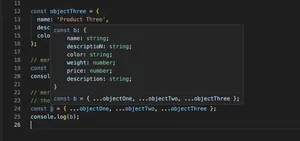Overview
TypeScript’s skipLibCheck option in tsconfig.json can be a quick fix for bypassing type checking on declaration files. Understanding its trade-offs is crucial for maintaining type safety in your projects.
Introduction to skipLibCheck
TypeScript is a strongly typed superset of JavaScript that compiles to plain JavaScript. It offers great tooling and helps catch errors at compile time, via strict type checking. TypeScript configurations are handled by the tsconfig.json file, an integral part of any TypeScript project. One of the lesser-known, yet significant, flags in this configuration file is skipLibCheck.
By default, this property is set to false, meaning TypeScript will check all the declaration files (*.d.ts) in the project, which can sometimes include external libraries’ type definitions. However, setting skipLibCheck to true tells TypeScript to skip type checking those declaration files.
{
"compilerOptions": {
"skipLibCheck": true
}
}When to Use skipLibCheck
The primary case for using skipLibCheck is to improve compilation times, especially for large projects or when using libraries with complex or incomplete types. Incompatibilities between libraries, or between libraries and TypeScript’s latest version, can also be circumvented with this setting.
Improving Build Performance
Skipping library checks can noticeably speed up your build process, as illustrated by this before-and-after example:
// Before skipLibCheck
tsconfig.json:
{
//... other configurations
}
// Terminal build times
$ tsc
// Output: Time: 25797ms
// After skipLibCheck
tsconfig.json:
{
"compilerOptions": {
"skipLibCheck": true
}
//... other configurations
}
// Terminal build times
$ tsc
// Output: Time: 15349msDealing with Type Conflicts
Another reason to enable skipLibCheck is to bypass unavoidable TypeScript errors that originate from conflicts in third-party type definitions.
Assume you have two libraries, LibraryA and LibraryB, and both include type definitions for a global variable or feature. This could potentially lead to a type conflict:
// Error example caused by conflicting global type definitions
tsconfig.json:
{
"compilerOptions": {
"skipLibCheck": false // Default
}
}
// Terminal output
$ tsc
// TypeScript error message...
Setting skipLibCheck to true would avoid this conflict:
tsconfig.json:
{
"compilerOptions": {
"skipLibCheck": true
}
}
// Terminal output
$ tsc
// Compiles successfully with no errors
Downsides of Using skipLibCheck
While skipLibCheck can be quite helpful, it does have its downsides. Skipping library checks can lead to ignoring real type problems that may cause runtime errors. In the interest of preserving comprehensive type safety, it’s important to heed these trade-offs.
Examples of Potential Issues
Consider this scenario, where a library has introduced a breaking change in its type definitions:
// Breaking change in an external library might be missed
// with skipLibCheck enabled
tsconfig.json:
{
"compilerOptions": {
"skipLibCheck": true
}
}
// Your TypeScript code might then compile...
// ... but have unexpected runtime errors due to
// unnoticed type changes
Best Practices
It’s important to strike a balance between build time efficiency and type safety. Enable skipLibCheck if necessary but keep track of library updates and test extensively. Periodically check with skipLibCheck disabled to flush out any hidden issues.
Strategic Use
When possible, confine the use of skipLibCheck to specific development periods or branches where rapid iteration is more critical than full type-checking, such as during prototyping.
Conclusion
Understanding when and where to use the skipLibCheck option is an important part of managing TypeScript configurations. It can dramatically reduce build times and solve library incompatibilities, but at the cost of potentially masking type errors. Use it wisely to balance development velocity with long-term codebase stability.
